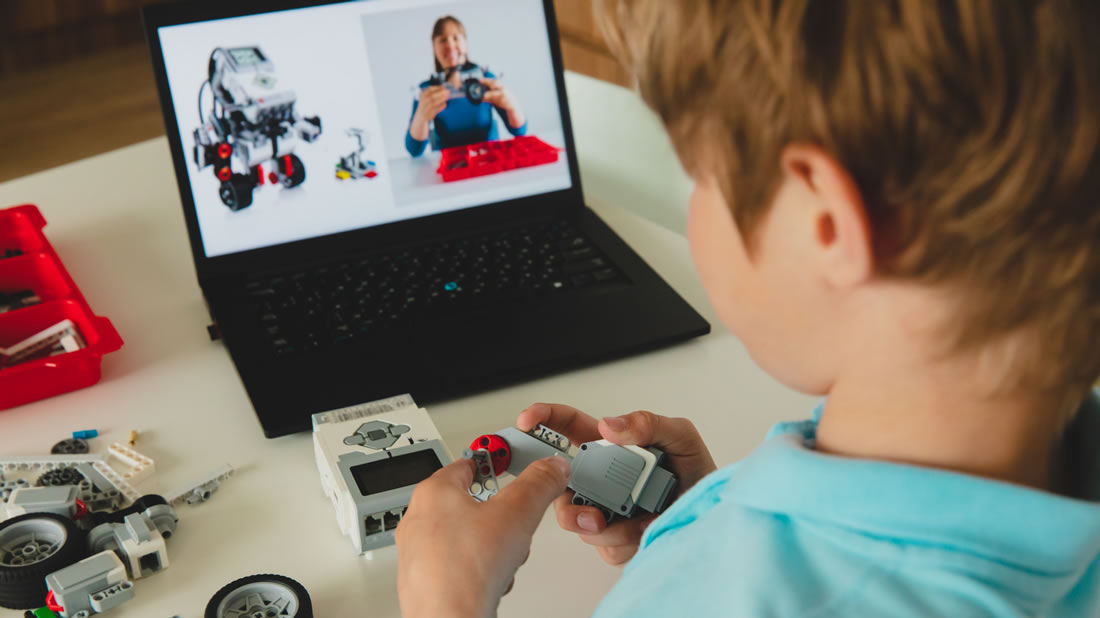3 reasons virtual STEM is here to stay
Virtual STEM can be defined in various ways – some educators define it as broadly as an online recording of any STEM-based topic, while others are more specific, saying virtual field trips or activities are required for it to be virtual STEM. Regardless, the most important qualification for virtual STEM is an authentic learning experience for students with some kind of real science, engineering, math, or technology practice built into it.
With virtual STEM, students need some kind of interactivity, whether they are interacting with each other, the teacher, or some kind of technology or software. This interactivity component is important so learning is tied to a real world application rather than it just being an abstract concept.
Just like most things, virtual STEM comes with its challenges, especially this past year as teachers quickly had to figure out the best way to communicate with their students, how to run their classrooms, and how to keep students on task. However, the many upsides to virtual STEM highlight its staying power, even as students and teachers move back into the classroom.
Below are three of the biggest benefits of virtual STEM.
Gives more students access to STEM. Through virtual STEM activities, teaching and learning is able to continue in any environment, whether students are remote, hybrid, or in-person. Students who are more challenged using manipulatives or with physically building something can have more confidence and enthusiasm to participate because of virtual STEM.
Many teachers have also found students are highly engaged in virtual STEM programs and often take charge of their learning more, particularly when students are participating in the engineering design process and mapping out how they are going to research, analyze, and test throughout the process. Especially in middle and high school, as well as college, teachers can act more as facilitators and let students take the driver’s seat.
Provides opportunities to interact with STEM experts. Using virtual conferencing platforms, teachers can bring in STEM experts who students likely would not have had the chance to hear from before. This provides students an opportunity to hear and learn directly from professionals in STEM fields and get a better understanding of potential careers.
For example, a school could connect with a professional engineer to help assist in the teaching of a course. The primary teacher could still lead the class, but students would have the opportunity to talk to the engineer, ask questions, and receive valuable feedback.
Firms up students’ understanding of math and science concepts. Virtual STEM comes with many teachable moments for students, including being able to show students the value of research and how it helps with decision-making throughout the engineering design process.
Many online programs help engage students in meaningful engineering design and scientific inquiry, and some provide students with the ability to create a virtual design, improve that design through unlimited iterations, and then compete against other students with the designs they created.
During this past year of remote learning, there have been many things that have worked really well and will continue to carry on in the future, and virtual STEM is one of them. Virtual STEM creates new and engaging learning opportunities for students and is surely here to stay.
